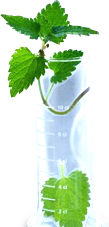



Author(s): E. M. Arhoghro, C. Ikeh, A.A Uwakwe, K. E. Ekpo*, E.O. Anosike
Cisplatin is an effective chemotherapeutic agent used for a wide variety of tumors, but is reported to be hepatotoxic. In the current study, the dose dependent and time course curative potential of aqueous leaf extract of Ocimum gratissimum (O.G.) on cisplatin induced hepatotoxic rats using biochemical and histopathological approaches was evaluated. Male albino wistar rats weighing between 150-200g were randomly separated into four different groups of eighteen (18) rats per group. Rats in group 1 received no cisplatin. Normal saline was administered intraperitoneally (i.p). The rats in group 2 were injected with a single dose of cisplatin (5 mg/kg body weight i.p). Tissue damage was also induced in rats in groups 3 and 4 by a single intraperitoneal-administration of cisplatin (5 mg/kg body weight). After three days, 2ml/kg body weight of 5% and 10% aqueous extract of Ocimum gratissimum were administered to rats in groups 3 and 4 respectively, through the oral route using the gavage once daily for 3, 6, 9 and 12 days. Rats in group 2 were given sterile water in place of the extracts while rats in group 1 were the untreated controls. They were all allowed unlimited access to tap water and growers’ mash. Results showed the extract to cause significant (P≤ 0.05) dose and time related attenuation in the elevation of serum liver enzyme markers of acute hepatocellular injury (ALT, AST and ALP) and increase in serum protein. Cisplatin treatment caused significant increase (P≤ 0.05) in serum alanine aminotransferase (ALT) from 43.03 ± 1.29 to 127.90 ± 0.89 U/L and a decrease (P≤ 0.05) in serum protein concentration from 93.70 ± 0.61 to 50.43 ± 1.53 g/l. There were considerable decreases (P≤ 0.05) in body weight and liver weight to body weight ratio in the test animals. However, most of these observed changes were alleviated by prophylactic treatment with aqueous extract of O. gratissimum which was also found to be dose and time dependent (P ≤ 0.05). The ameliorating effect was further evident through decreased histopathological alterations of liver tissues in the groups treated with aqueous extract of O. gratissimum (5% and 10%). The results from this study indicate that aqueous leaf extracts of O. gratissimum has anti-hepatotoxic action against cisplatin induced hepatic toxicity in rats. Hence the extracts have the potential to be used for the management of hepatopathies and as a therapeutic adjuvant in cisplatin toxicity